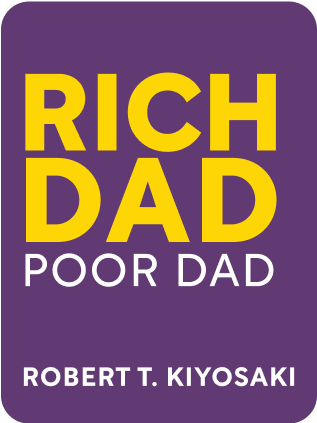

This article is an excerpt from the Shortform summary of "Rich Dad Poor Dad" by Robert T. Kiyosaki. Shortform has the world's best summaries of books you should be reading.
Like this article? Sign up for a free trial here .
Are you taking steps toward being financially independent? Are there any Rich Dad, Poor Dad tips you can use?
In a book filled with important lessons on reframing the idea of wealth and earning money, Rich Dad, Poor Dad tips are hugely valuable. Rich Dad, Poor Dad tips can help you change your mindframe, secure assets, and overcome your own mental obstacles.
Rich Dad, Poor Dad Tips
Use these tips to work toward financial independence. Remember, these aren’t the only lessons and advice offered in the book, but are ideas that you can adopt to change your mindframe about finances.
1. Keep Learning, and Learn Quickly
Great opportunities arise in a changing world. (Shortform note: Put technically, markets are less efficient and less at equilibrium when things rapidly change, like through new technology.)
300 years ago, land was the basis of wealth. Then factories and industry became the new basis for wealth. Today, it’s information. And by its nature, information changes more rapidly than land or manufacturing. So it’s even more important to keep learning and adapting, quickly, as it’s ever been.
(Quote from Charlie Munger: “In my whole life, I have known no wise people (over a broad subject matter area) who didn’t read all the time — none, zero. You’d be amazed at how much Warren [Buffett] reads.”)
This doesn’t have to be difficult or intense. Robert Kiyosaki mentions jogging through his neighborhood to spot which houses were listed for sale for longer than others, and making low-ball offers for these houses. This is one example of how to use the Rich Dad, Poor Dad tips in the book.
The more you learn and the more experience you get, the more money you make, which gives you more chances to learn even further. The faster you can iterate your knowledge, the faster the returns compound.
2. Learn Broadly
Many people with great talent in their trade aren’t rich. They’re specialists and proud of it. One of the Rich Dad, Poor Dad tips says that you can make money with a variety of skills.
Often, they just need to learn and master one more skill to dramatically boost their income.
- Analogy: How many people can make a better hamburger than McDonald’s? Most people would think so. Then why does McDonald’s make more money than they do? Because McDonald’s has mastered a business system, while most people focus on building a better hamburger.
Notable examples of underappreciated skills include sales, marketing, communication, negotiating, investing, people management, and financial intelligence.
- Consider taking a pay cut to work at a firm where you’ll gain a critical orthogonal skill – like marketing at an ad agency, or people leadership in the military.
- Rich Dad invited his son and the author to work in a broad set of roles at his companies (bus boy, construction worker, accounting) and participate in meetings with bankers, lawyers, and accountants.
Look ahead at what skills you want to acquire before choosing a profession and specializing in the rat race. Avoiding the rat race is one of the book’s consistent Rich Dad, Poor Dad tips.
Side note: if you do specialize instead of generalize, make sure you have a union. If your specialist skills are of limited value outside the industry, like teachers or airline pilots, you’ll have nowhere to work if you get pushed out of the industry.
3. Reduce Taxes Through Corporations
(Shortform caveat: we consider this the worst chapter in the book. He doesn’t explain the advice clearly enough to be useful. The advice doesn’t apply to most people’s situations. And taken incorrectly, it could get you into trouble.
Treat none of this as actual tax advice; seek a tax attorney for real advice, and executing some of this too liberally is illegal.)
4. Buy Assets, Not Liabilities
So how do you put your money to work for you? The key is to buy things that generate income (assets). You do NOT want to buy things that lose money over time or incur large expenses (liabilities).
This is obvious enough. But the most deceptive investments look like assets, but are actually liabilities.
These Rich Dad, Poor Dad tips are not the only ones you’ll find in the book. In fact, all the lessons offer valuable Rich Dad, Poor Dad tips.

———End of Preview———
Like what you just read? Read the rest of the world's best summary of Robert T. Kiyosaki's "Rich Dad Poor Dad" at Shortform .
Here's what you'll find in our full Rich Dad Poor Dad summary :
- The key differences in how rich dad and poor dad approached life
- Why it's a terrible idea to buy an expensive house
- How to overcome your own mental blocks to become wealthy for life






